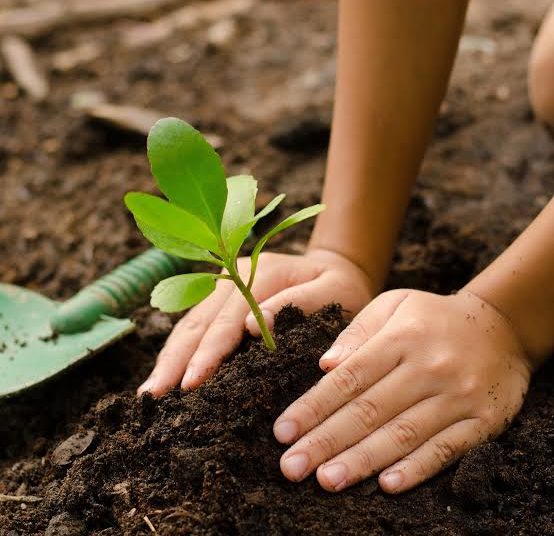Embracing a green economy is vital for both our health and the planet. The principle that what we give to nature is what we receive in return encourages us to be intentional in our interactions with the environment, ultimately leading to a greater good. Being eco-conscious means celebrating creation, responsibly managing our resources, and instilling these values in future generations.
One of the best aspects of adopting eco-friendly habits is that they often align with frugality; making environmentally friendly choices can benefit our homes and budgets while also supporting the Earth. Here are some small, manageable green actions you can implement at home. Choose three that you’re not currently practicing and commit to making them a habit this year.
Gardening: Having a small backyard garden where you can grow some vegetables, fruits and spices is not only frugal but healthy in the sense that eating organic bred fruits and vegetables is a healthy option to subscribe to. Which in turn keeps the earth sustainable. Gardening according to Healthline builds strength, improves memory, fosters human connection, helps addiction recovery and reduces stress.
Using energy-saving options: “One way that we can build toward a healthier future is by using energy more efficiently. Improving energy usage across our homes, cars, and buildings cuts down on harmful emissions and pollutants; in fact, a 2018 study found that reducing annual electric consumption by 15% could prevent more than 2,000 deaths, avoid nearly 30,000 asthma episodes, and save as much as $20 billion in avoided health costs each year. And the evidence keeps stacking up: As we look to prevent future health crises and ensure that all communities can enjoy a safe environment, here are three recent studies underscoring how energy efficiency can help” Alliance to Save Energy” blog. Replacing all appliances to energy saving helps create a green culture at our doorsteps.
Support your local economy and shop at your farmer’s market: Getting organic, locally grown foods is not just healthy but a sweeter options than the hybrid grown. Supporting your local economy benefits the economy and also in turn creates wealth for the nation and renewable options for the land. Local foods boost community ties and lower carbon footprints due to reduced transport needs. It’s worth noting that not all local produce is organic, though many small-scale farmers employ organic methods without the official label. The many reasons to start a local option choice.
Recycling and Reuse: The benefits of social media enables us to see many DIY’s (Do It Yourself). Creating household decos from scraps, and reusing tins for decorations also help us achieve a renewable and circular economy right at our doorsteps. Turning used tyres into temporary fences and play areas for kids. These are all ways of creating a green economy.
Healthy lifestyles complement the circular economy by promoting choices that prioritize both personal well-being and environmental health. These include:
Conscious consumption: Choosing eco-friendly products that have a smaller carbon footprint, are made from sustainable materials, or are designed for longevity.
Minimalism: Emphasizing quality over quantity to reduce waste and consumption.
Physical activity: Walking, cycling, or using public transportation reduces carbon emissions and promotes a healthy lifestyle.
Sustainable diets: Eating more plant-based foods, reducing meat consumption, and opting for locally sourced, organic products contribute to both personal health and environmental sustainability.
Waste reduction habits: Recycling, composting, and reducing single-use plastics help minimize waste, directly aligning with circular economy principles.
By integrating circular economy practices into daily life, individuals can lead healthier lives while also supporting a more sustainable planet.
Embracing a green economy begins with simple, intentional choices we make every day. From gardening and energy-saving solutions to supporting local markets and reusing materials, these actions not only benefit our health but also contribute to the well-being of our planet. By adopting sustainable habits, we foster a culture of environmental stewardship that nurtures both our communities and the earth. In the end, living sustainably is more than a lifestyle—it’s a responsibility to future generations, ensuring that the resources we enjoy today will be available for tomorrow. The green economy isn’t just a distant concept; it’s a reality we can build right at our doorstep.





